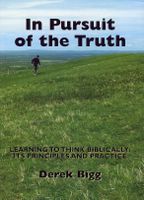How the Old Testament affects the New
How sound is Biblical Theology? Is it just another way of reading the Bible - an arbitrary choice between several options - one of which might even be the postmodern approach in which the meaning of the text is found in the reader? Is it one of the more reliable ways of reading the Bible? Or is it actually the only way of correctly reading the Bible, with ultimately other methods only working when they happen to give the same results as Biblical Theology? This is a key question that people who read the Bible need to grapple with - because our definition of what Christianity is depends upon the way in which we interpret what God has revealed. I would argue that the latter option is the correct one; we should understand God as he has spoken, rather than according to the interpretation or structure which we place on his Word.
This essay, on the Between Two Worlds blog, looks (amongst other things) at the fact that Jesus and the apostles built much of their argumentation on Old Testament texts; and that we should follow their exegetical example.
The author writes, with reference to a collection of essays that address this question:
The starting point for much of the discussion is the idea that Jesus and the apostles--like their Jewish contempories--used non-contextual hermeneutical methods. That is to say, Jesus and the apostles (it is argued) interpreted the OT with a method that served their purpose but took those verses out of context. One of the purposes of Beale's essay is to suggest that such an idea is incorrect, and to propose a better alternative in its place.He argues that "Jesus and the apostles had an unparalleled redemptive-historical perspective on the Old Testament in relation to their own situation". In other words, in effect (and squashing down a much more substantive argument!) they naturally adopted a Biblical Theological perspective to the Old Testament.
Labels: Biblical Theology

